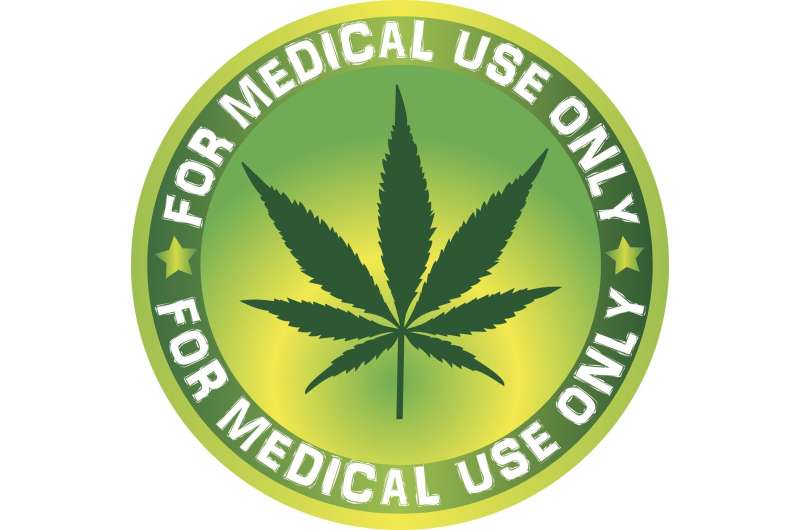This article has been reviewed according to Science X's editorial process and policies. Editors have highlighted the following attributes while ensuring the content's credibility:
fact-checked
trusted source
proofread
Study: Access to cannabis for cancer patients is not equitable

The same factors driving many health care disparities in the U.S. are also affecting who has access to cannabis for managing symptoms related to cancer treatment, according to a new study led by a University at Buffalo researcher.
Cannabis use is an increasingly frequent alternative for patients trying to manage the pain, anxiety and sleep disruption that can accompany a cancer diagnosis and its subsequent treatment, but very little research has been conducted that explores who has access to cannabis and what barriers might exist that limit that access.
This study provides some initial understanding for how nonmedical factors, like where people are born, live and work, along with the various social forces that shape daily life, come into play. The findings published in the journal Cannabis suggest race and income are both associated with determining which patients have access to cannabis, where they get it from and in what form.
"This is sadly yet another way in which systemic factors like racism and inequitable distribution of income impacts whether patients have the same access for managing cancer-related symptoms," says Rebecca Ashare, Ph.D., associate professor of psychology in the UB College of Arts and Sciences, and the study's first author. "Given racial disparities in both cancer pain management and symptom burden suggested in previous research, it will be essential to identify possible barriers to access if we're to avoid widening these already existing health disparities in cancer care."
For the research, Ashare and Salimah Meghani, Ph.D., a professor in the University of Pennsylvania School of Nursing, co-led an anonymous survey, for five months in 2021, of cancer patients over the age of 18 at a large NCI designated cancer center in Pennsylvania. In 2016, the state made medical cannabis available to its residents with a cancer diagnosis or other approved "serious medical condition." Currently, 38 states and the District of Columbia have passed similar legislation. Adult and recreational use cannabis at the time of the study were not legal in Pennsylvania, restrictions which are still in place today.
Although nearly 43% of the study's randomly selected 352 participants received medical certification for cannabis, those who identified as Black/African American were significantly less likely to be certified compared to the group's white participants, and were also more likely to report using cannabis in forms associated with adverse health outcomes, like varieties intended to be smoked or vaporized.
"We don't know why patients who identified as Black/African American were less likely to be certified, but it's possible that the sense of untrustworthiness in health care created by structural racism makes it less likely for these patients to be willing to participate in a state-wide registry," says Ashare, who at the time of the research was a faculty member in the Department of Psychiatry at the Perelman School of Medicine at the University of Pennsylvania. "But without that certification, it's possible that patients are turning to unlicensed sellers for cannabis that are less likely to sell products with lower-risk profiles, such as edible formulations.
"Lower income patients were also likely to rely on these sources, using a product that is likely more harmful, not only because of its form, but due to the absence of any regulation or monitoring."
Ashare stresses, however, that what's important is that these findings, or any potential explanations, go well beyond the arena of personal choices.
"This is not about choice; this is not about blaming patients; this is not about telling people to stop smoking cannabis," says Ashare. "This is about highlighting systemic factors that make it difficult—if not impossible—for the people who may need it the most to have access to safer options to manage their cancer-related symptoms.
"This is another example of the same cascading systemic factors surfacing with cannabis access that we know are already creating health care disparities more broadly."
Ashare says understanding the benefits and harms of cannabis use is critical as the research catches up.
"The research is far behind the ways in which patients are using cannabis," says Ashare. "And though our study was done in one particular state, there is some emerging evidence that the rates of use were consistent across the country."
More information: Rebecca Ashare et al, Social Determinants of Health Associated with How Cannabis is Obtained and Used in Patients with Cancer Receiving Care at a Cancer Treatment Center in Pennsylvania, Cannabis (2023). publications.sciences.ucf.edu/ … bis/article/view/151




















